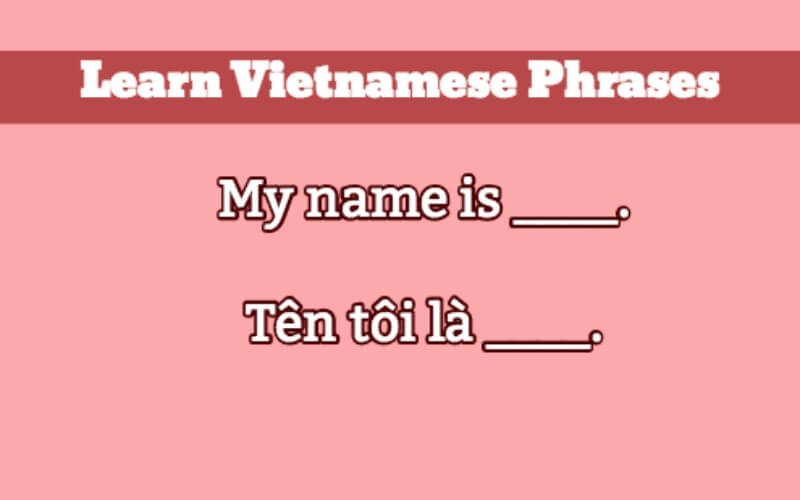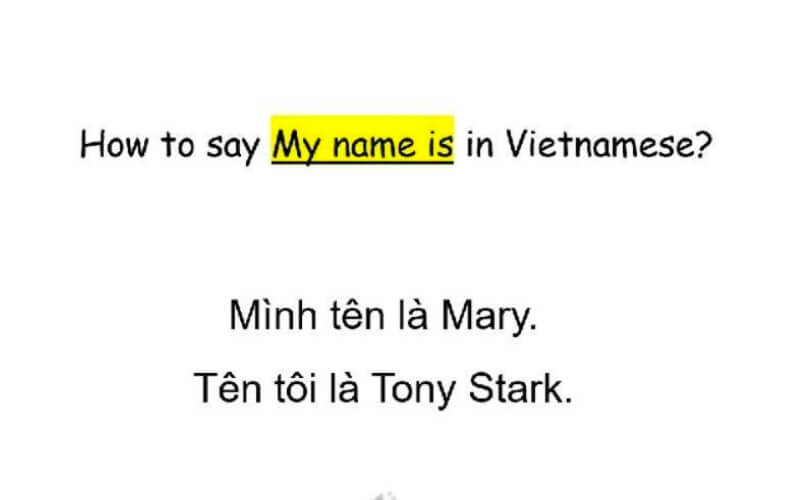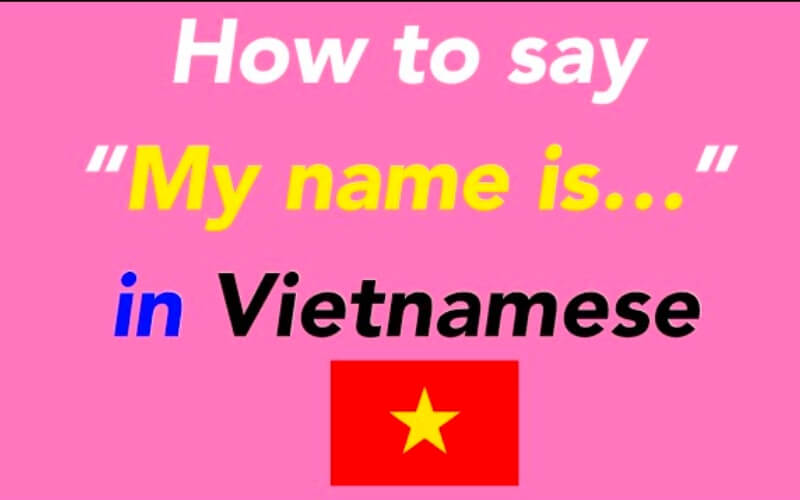When you introduce yourself in Vietnamese, you’re not just telling someone your name. You’re giving them a little peek into your identity, your culture, and maybe even your family’s dreams for you. In Vietnamese, the phrase my name is translated to “Tên tôi là…” or just “Tôi tên là…”. But in Vietnam, names carry a lot more weight than just being words you use to call someone. To get a better understanding of how people in Vietnam introduce their names, let’s dive into the article below with VTJ!
The importance of names in Vietnamese culture
In Vietnam, names are chosen with a lot of care and thought. Unlike some cultures where names are chosen for their sound or popularity, in Vietnam, names are carefully selected. They are often based on their meaning. Names often reflect the qualities parents hope their child will have.
For example, a common name like “Hạnh” means virtue or moral integrity, while “An” means peace. So, parents might name their child something that they believe will shape who they grow up to be.
So when you say your name in Vietnamese, you’re not just pronouncing a few syllables. You’re sharing a part of who you are and maybe even what your family hoped for you when you were born.
Read more: “I miss you” in Vietnamese: Expressions and Interesting Usage
The structure of Vietnamese names
To truly understand how to say ‘my name is’ in Vietnamese, it’s helpful to know how Vietnamese names are structured. Typically, Vietnamese names have three parts: the family name (which comes first), the middle name, and the given name. For example, in the name “Nguyễn Thị Mai,” “Nguyễn” is the family name, “Thị” is the middle name, and “Mai” is the given name.
When you introduce yourself in English, you might say, “My name is Mai Nguyễn,” but in Vietnamese, it’s “Tên tôi là Nguyễn Mai.” Notice how the family name comes first? That’s important. It shows how much family matters in Vietnamese culture, where the group often comes before the individual.
 The structure of Vietnamese names is the family name (which comes first), the middle name, and the given name
The structure of Vietnamese names is the family name (which comes first), the middle name, and the given name
The significance of middle names
In Vietnamese culture, middle names often serve a specific purpose, especially for women. For instance, “Thị” is a super common middle name for women, traditionally signifying femininity. It’s not as common now as it used to be, but it was once the go-to middle name for girls. So, when someone says, “My name is in Vietnamese,” and they include “Thị,” it might point to something traditional or culturally meaningful about their identity. For men, a typical middle name might be “Văn,” which hints at learning or culture.
Pronunciation challenges
The critical importance of pronunciation is a challenging aspect of learning to say ‘my name is’ in Vietnamese. Vietnamese is a tonal language, meaning the meaning of a word can change completely depending on the tone you use. For example, the word “Ma” can mean ghost, but with a different tone, it can mean mother or tomb.
Therefore, when introducing yourself in Vietnamese, mastering the tones is essential. Mispronouncing your name or someone else’s can lead to confusion or amusing misunderstandings. This is one reason learning Vietnamese can be tough but also super rewarding. Getting it right shows respect for the language and the people who speak it.
 Getting the tones right in Vietnamese is crucial when saying your name
Getting the tones right in Vietnamese is crucial when saying your name
FAQs
How “My name Is” varies across Vietnam?
The pronunciation of ‘my name is’ in Vietnamese varies across different regions of the country. The country has three main regions-North, Central, and South-and each has its own dialect. While the phrase “Tên tôi là…” stays the same, the accent and the way people introduce themselves can vary. For example, in the North, pronunciation tends to be more precise, with very clear tones. In the South, the tones might be a bit flatter, and the speech more laid-back.
So, when you say “my name is in Vietnamese” in different parts of the country, you might hear slight variations in how it’s pronounced. It’s all part of what makes the language so rich and diverse.
Read more: How do you say ‘Yes’ in Vietnamese: Meaning, Pronunciation, and Alternatives
How to introduce yourself in Vietnamese
So, if you’re learning Vietnamese and want to introduce yourself, how do you say “my name is” in Vietnamese? Here’s a quick guide:
- Start with “Tên tôi là…” or “Tôi tên là…”: This is the most straightforward way to say “My name is…”
- Add your full name: Remember to start with your family name, followed by your given name. For example, “Tên tôi là Nguyễn Mai.”
- Practicing the pronunciation: Master the tones, as Vietnamese is a tonal language. Practicing with a native speaker or using language apps can help you master this.
- Be aware of regional differences: If you’re traveling around Vietnam, don’t be surprised if your name sounds a bit different depending on the region. Just go with the flow and enjoy the diversity of accents.
 Vietnamese names start with the family name first
Vietnamese names start with the family name first
Read more: Good Night in Vietnamese: Meaning and Usage
Learning how to say “my name is” in Vietnamese might seem like a small thing, but it’s a big step in understanding the culture and language of Vietnam. Whether you’re visiting Vietnam or just picking up the language, knowing how to introduce yourself properly is key. So next time you’re in a conversation, confidently say, “Tên tôi là…” and share a little piece of your story.





